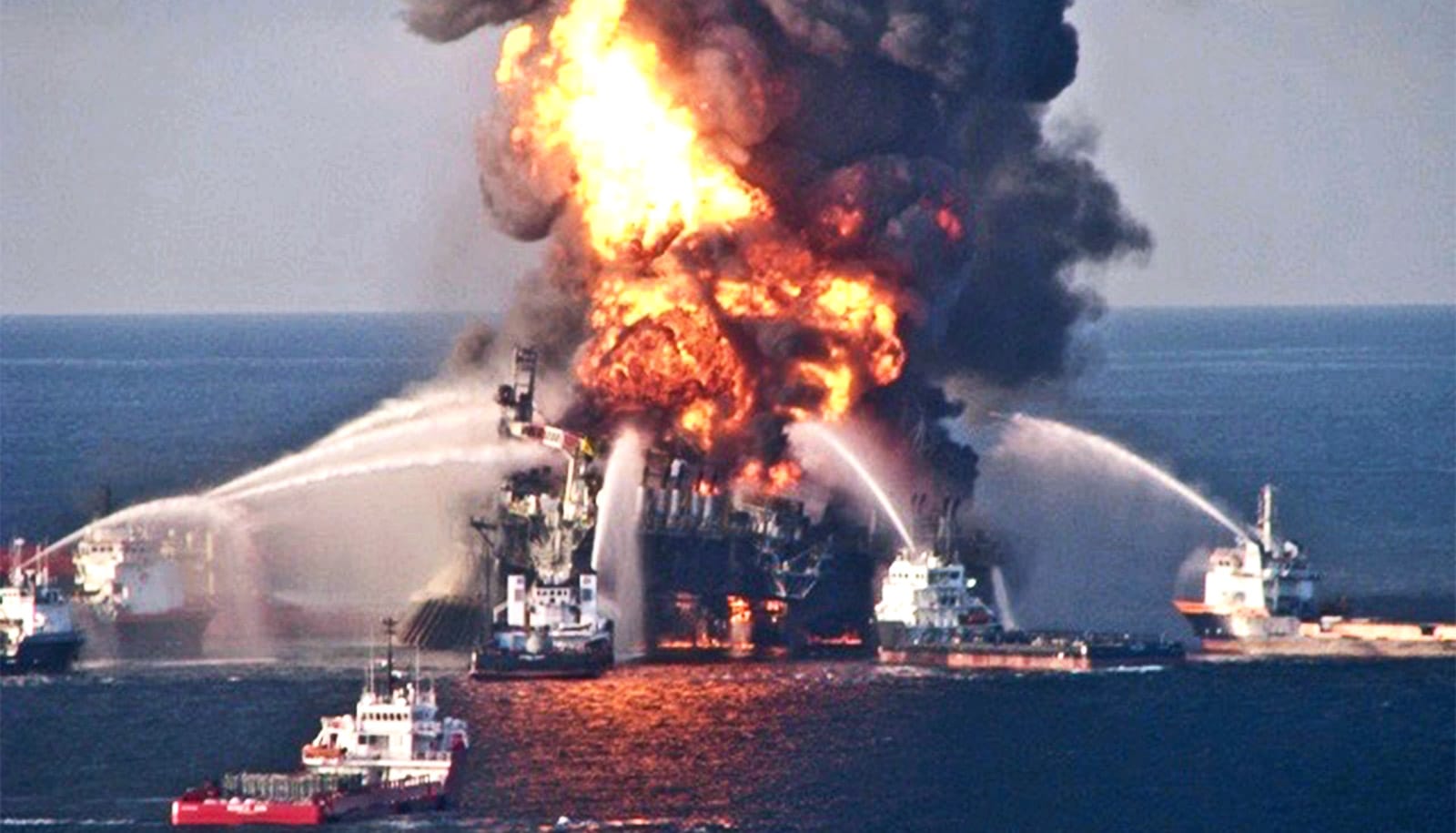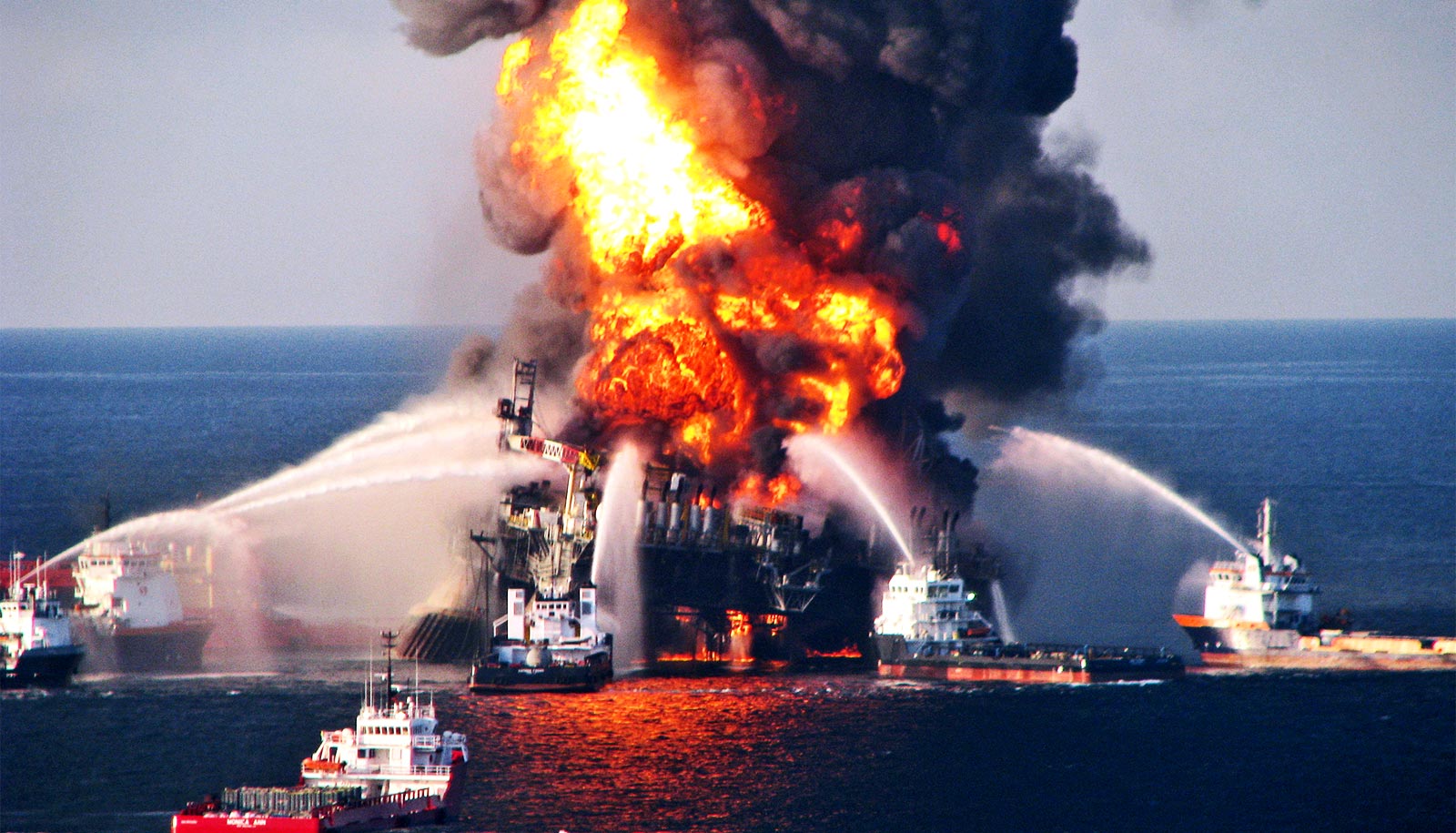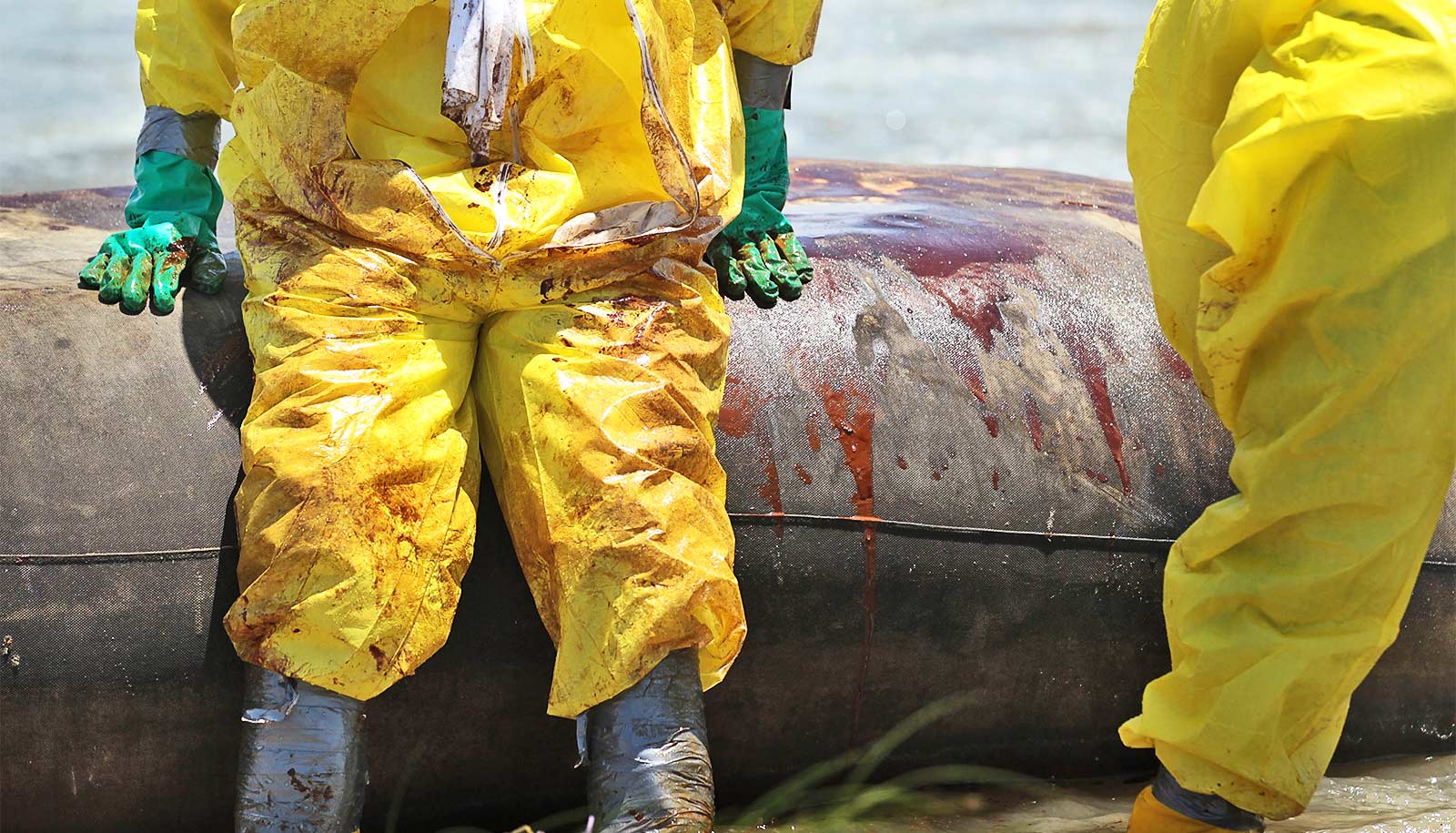
Fire boats battle the blazing remnants of the Deepwater Horizon oil platform. (Credit: US Coast Guard)
What can we learn from 2010’s Deepwater Horizon oil spill?
Ten years ago, the Deepwater Horizon oil spill in the Gulf of Mexico became the largest of all time. A new review look backs for lessons we can learn today.
New research details what scientists have learned from studying the Deepwater Horizon oil spill since it happened in 2010.
Ten years ago this month, a powerful explosion destroyed an oil rig in the Gulf of Mexico, killing 11 workers and injuring 17 others. Over a span of 87 days, the Deepwater Horizon’s Macondo Well released an estimated 168 million gallons of oil and 170,000 tonnes of natural gas into the ocean, making it the largest accidental marine oil spill in history.
A team of researchers quickly mobilized to study the unprecedented disaster, investigating its effects on the ocean’s interior, including the seafloor and animals such as deep-sea corals, while also tracking dispersants used to keep the oil from reaching the shoreline.
“So many lessons were learned during the Deepwater Horizon disaster that it seemed appropriate and timely to consider those lessons in the context of a review,” says coauthor Elizabeth Kujawinski, a geochemist at Woods Hole Oceanographic Institution at the University of California, Santa Barbara.
“We found that much good work had been done on oil weathering and oil degradation by microbes, with significant implications for future research and response activities.”
“Going in we knew just a little about the ecosystem in the deep gulf,” says David Valentine, a professor of Earth science and biology, “and the Deepwater Horizon was this forbidden experiment that created observable reverberations for years throughout the deep sea ecosystem in the Gulf of Mexico.”
The event provided a wealth of information about the chemistry and microbiology of deep and shallow ocean ecosystems, including their response to environmental change. It also allowed scientists to study how carbon-containing molecules behave in the ocean.
“We’ve discovered that microbial life has many tricks up its sleeve when it comes to taking on oily environments,” says Valentine, who is leading a new campus initiative to capitalize on these microbial tricks toward bioenergy generation and pollution cleanup.
“One of the big takeaways is that the oil doesn’t just float and hang around,” adds coauthor Christopher Reddy, also from Woods Hole. “A huge amount of oil that didn’t evaporate was pummeled by sunlight, changing its chemistry. That’s something that wasn’t seen before, so now we have insight into this process.”
The use of chemical dispersants, released for the first time in a deep ocean oil spill, remains one of the most controversial debates in the aftermath of Deepwater Horizon. Studies offer conflicting conclusions about whether dispersants released in the deep sea reduced the amount of oil that reached the ocean surface, and the results are ambiguous about whether dispersants helped microbes break down the oil at all.
“I think the biggest unknowns still center on the impact of dispersants on oil distribution in seawater and their role in promoting—or inhibiting—microbial degradation of the spilled oil,” says Kujawinski.
Though the authors caution that the lessons learned from the Deepwater Horizon release may not be applicable to all spills, the review highlights advances in oil chemistry, microbiology, and technology that may be useful at other deep-sea drilling sites and shipping lanes in the Arctic.
The authors call on the research community to work collaboratively to understand the complex environmental responses at play in cold climates, where the characteristics of oil are significantly different from the Gulf of Mexico.
“While it is the nature of science that we’ve introduced as many questions as we’ve resolved, I do think we are in a better place to understand, predict, and respond to major spills ,” Valentine says.
“Still, we’ve also learned from history that our readiness cycles,” he adds. “We gradually become complacent as institutional memories and expertise fade. Until the next event.”
The review appears in the journal Nature Reviews Earth & Environment .
Additional coauthors are from Florida State University; the University of Southern California, Los Angeles; and Haverford College. The National Science Foundation funded the review.
Source: UC Santa Barbara
The post What can we learn from 2010’s Deepwater Horizon oil spill? appeared first on Futurity .
Share this article:
This article uses material from the Futurity article, and is licenced under a CC BY-SA 4.0 International License. Images, videos and audio are available under their respective licenses.
Related Articles:
Geology drove decisions that led to Deepwater Horizon explosion
May 13, 2019 • futurityNew tech is 10x better at cleaning up oil spills
Sept. 6, 2023 • futurityLinks/images:
- https://www.futurity.org/oleo-sponge-oil-spills-1379182-2/
- https://www.futurity.org/soil-pyrolysis-oil-spills-987452-2/
- https://doi.org/10.1038/s43017-020-0046-x
- https://www.news.ucsb.edu/2020/019876/lessons-deep-water
- https://www.futurity.org/deepwater-horizon-oil-spill-ten-years-later-2349222/
- https://www.futurity.org


